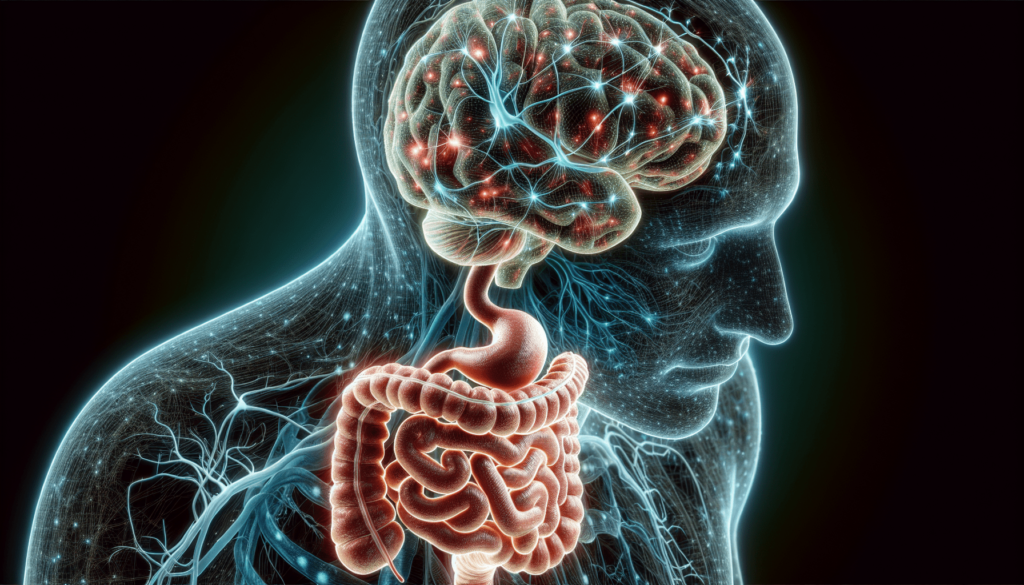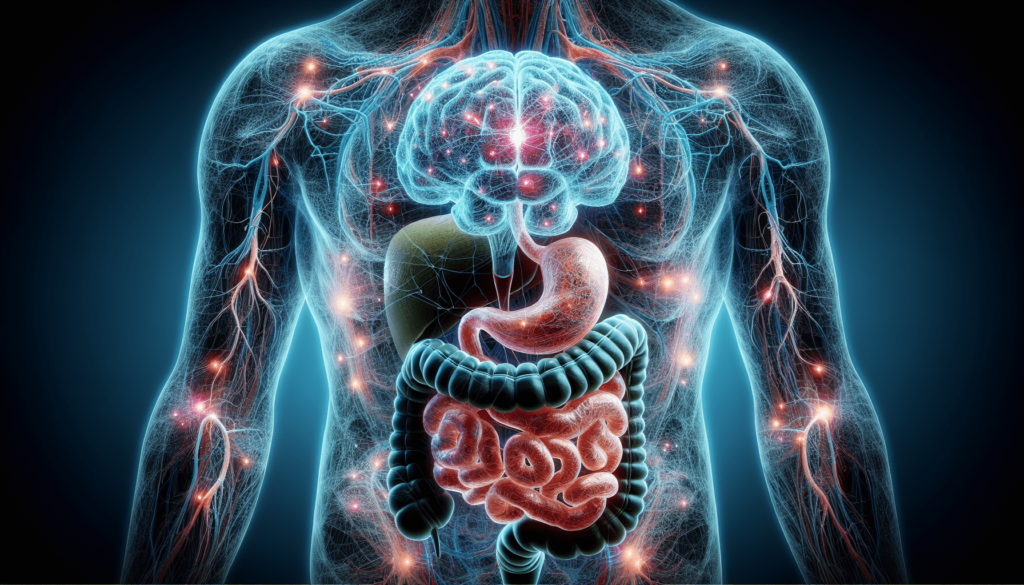Have you ever wondered about the connection between your gut and your brain? How does what you eat affect your mood and mental well-being? In this article, we will explore the intricate relationship between the gut and the brain, and how crucial it is for your overall health and well-being.

Understanding the Gut-Brain Connection
The gut-brain connection refers to the bidirectional communication system between the gut and the brain. This communication occurs through various pathways including the nervous system, the immune system, and hormones. The gut has often been referred to as the “second brain” due to its complex network of neurons, known as the enteric nervous system. This network is capable of operating independently of the brain and spinal cord.
How the Gut and Brain Communicate
The gut and brain communicate through the vagus nerve, which is the longest cranial nerve in the body. This nerve carries signals in both directions, constantly sending information back and forth. For example, when you’re stressed or anxious, your gut may respond with symptoms like nausea or stomach cramps. Similarly, when you experience digestive issues, it can also impact your mood and cognitive function.
Factors Affecting the Gut-Brain Connection
Several factors can influence the gut-brain connection, impacting your overall health and well-being. These factors include diet, stress, gut microbiota, and inflammation. Understanding how these factors interact can help you make informed decisions to support a healthy gut-brain axis.
The Role of Diet
Your diet plays a significant role in the health of your gut and brain. Consuming a diet rich in whole foods like fruits, vegetables, and whole grains can support a healthy gut microbiome, which in turn benefits brain function. On the other hand, a diet high in processed foods, sugar, and unhealthy fats can lead to gut dysbiosis and inflammation, negatively impacting your mental health.
Managing Stress Levels
Stress is a major factor that can disrupt the gut-brain connection. Chronic stress can lead to imbalances in the gut microbiota, increased intestinal permeability, and inflammation. Finding healthy ways to manage stress, such as mindfulness practices, exercise, and adequate sleep, can help support a healthy gut-brain axis.
The Role of Gut Microbiota
The gut microbiota, which consists of trillions of bacteria, fungi, and other microorganisms, plays a crucial role in the gut-brain connection. These microorganisms help maintain gut health, regulate immune function, and produce neurotransmitters that influence mood and behavior. Imbalances in the gut microbiota have been linked to various mental health conditions such as anxiety, depression, and even neurological disorders.
The Impact of Inflammation
Chronic inflammation in the gut can have a significant impact on the gut-brain connection. Inflammatory markers released in the gut can reach the brain through various pathways, leading to neuroinflammation and cognitive impairment. Addressing underlying gut inflammation through dietary changes, probiotics, and anti-inflammatory supplements can help support a healthy gut-brain axis.
Strategies to Support a Healthy Gut-Brain Axis
Maintaining a healthy gut-brain axis is essential for overall health and well-being. Here are some strategies you can incorporate into your daily routine to support this crucial connection:
Eat a Diverse and Balanced Diet
Consuming a diverse range of whole foods can help nourish your gut microbiota and support optimal brain function. Include plenty of fiber-rich foods, fermented foods, and prebiotics in your diet to promote a healthy gut environment. Limit processed foods, sugar, and artificial additives that can disrupt gut health.
Prioritize Stress Management
Finding effective ways to manage stress is key to supporting a healthy gut-brain axis. Practice mindfulness techniques, yoga, deep breathing exercises, or meditation to help reduce stress levels. Engaging in regular physical activity and getting enough sleep are also essential for maintaining a healthy balance between the gut and brain.
Support Gut Health with Probiotics
Probiotics are beneficial bacteria that can help support gut health and balance the gut microbiota. Incorporating probiotic-rich foods like yogurt, kefir, sauerkraut, and kimchi into your diet can promote a diverse microbiome. In addition, taking a high-quality probiotic supplement may be beneficial, especially after antibiotic treatment or during times of gut dysbiosis.
Incorporate Anti-Inflammatory Foods
Including anti-inflammatory foods in your diet can help reduce gut inflammation and support a healthy gut-brain connection. Foods rich in omega-3 fatty acids, antioxidants, and polyphenols can help combat inflammation and protect against oxidative stress. Consider adding foods like fatty fish, nuts, seeds, berries, and leafy greens to your meals to support overall gut health.
Stay Hydrated and Limit Alcohol
Proper hydration is essential for maintaining gut health and supporting digestion. Drinking an adequate amount of water throughout the day can help promote regular bowel movements and prevent constipation. Limiting alcohol consumption is also important, as excessive alcohol intake can disrupt the gut microbiota and lead to gut dysbiosis.
Conclusion
The gut-brain connection is a fascinating and intricate system that plays a crucial role in your overall health and well-being. By understanding the factors that influence this connection and implementing strategies to support a healthy gut-brain axis, you can optimize your physical, mental, and emotional health. Remember to prioritize a balanced diet, manage stress effectively, support gut health with probiotics, and incorporate anti-inflammatory foods into your meals. Taking care of your gut-brain axis can lead to improved mood, cognitive function, and overall quality of life.


